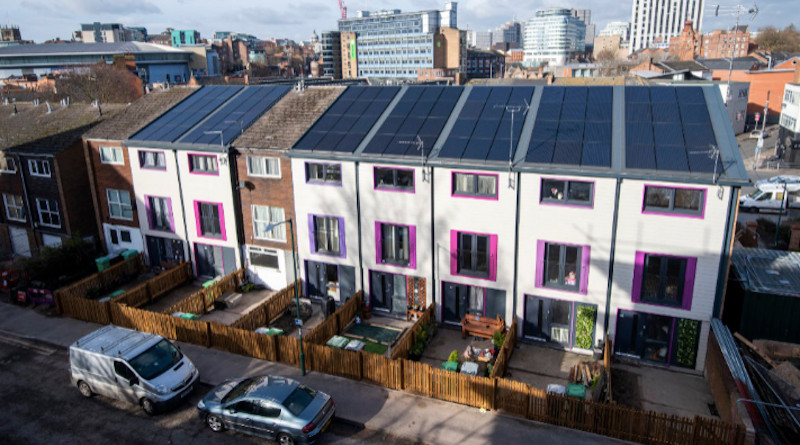Retrofit Social Housing: Better Homes Improve Lives
Our homes are essential for a successful society. They provide shelter and a safe space from which all of us, individually and collectively, can take part. But those homes need to be fit for purpose. They need to be ready for the challenges we face over the coming decades.
Housing accounts for about 30% of the UK’s energy demands and about 20% of UK greenhouse gas emission. We need dramatic improvements in our housing stock to meet the net-zero carbon emissions target by 2050.
At the same time, large numbers of people are in fuel poverty, where adequately heating their homes uses so much of their income that they fall below the poverty line. Fuel poverty leads to poor health, low levels of economic activity, and for the young, poor life outcomes.
Upgrading our housing stock will reduce carbon emissions, cut costs and improve health and wellbeing: all significant societal and economic benefits. The challenge has been developing routes to upgrade the wide range of housing types in the UK and driving down the costs to the point of economic viability.
Through participation in the REMOURBAN European project, Nottingham has tested different solutions to retrofitting homes to be more energy-efficient, less cold, and better places to live. The ‘Retrofit Social Housing Report– Better Homes Improve Lives’, by Nottingham Trent University, follows over 450 homes, mostly social housing. It describes how they were upgraded, what difference it made to energy efficiency, and the impact it had on the households.
Nottingham has learned a lot about the practical difficulties that must be overcome, but also the real benefits gained. Making our homes fit for the future needs of society is a major challenge that cannot be ignored. The evidence, advice and suggestions in this report will help everyone responsible for our housing stock to find solutions that work for them.

